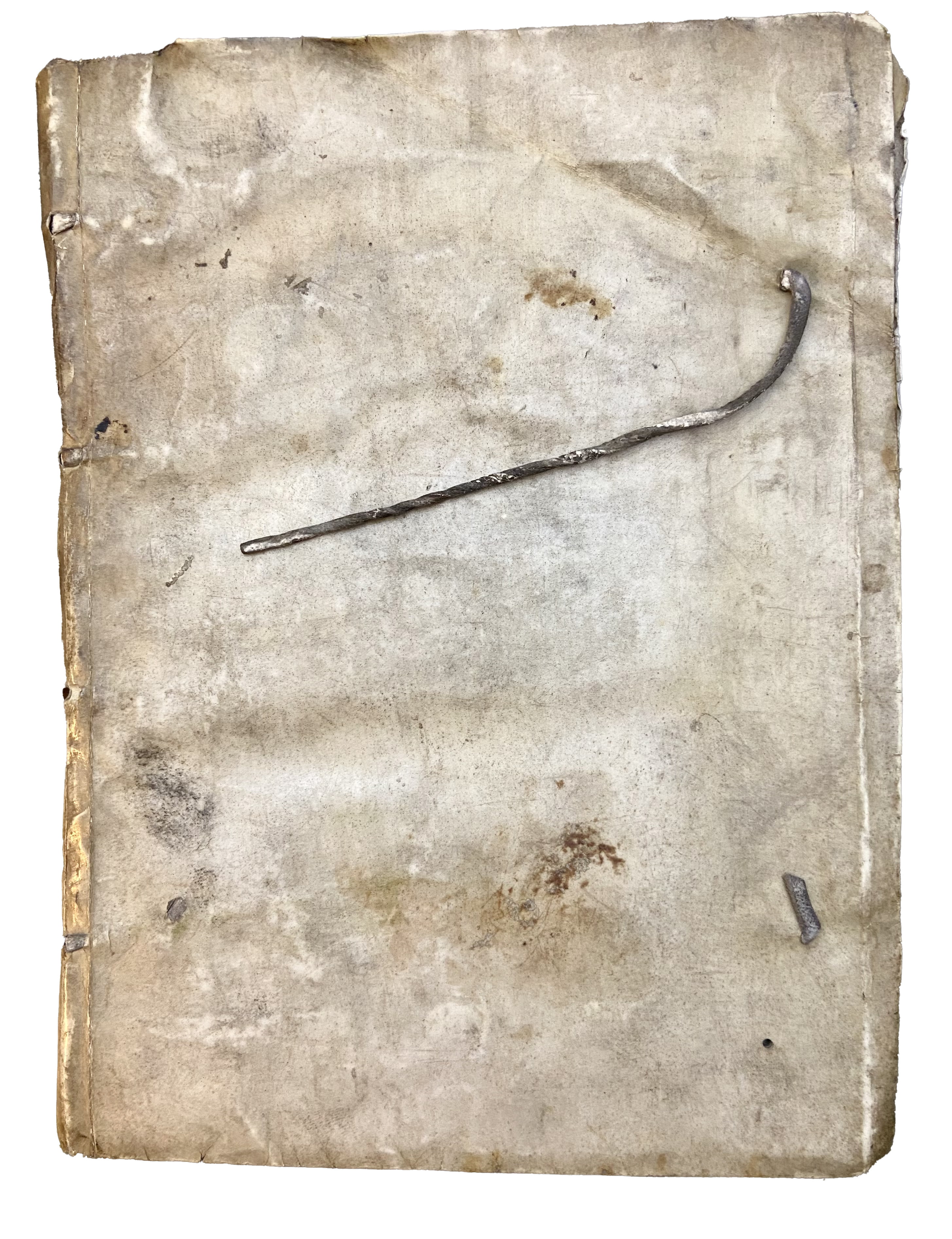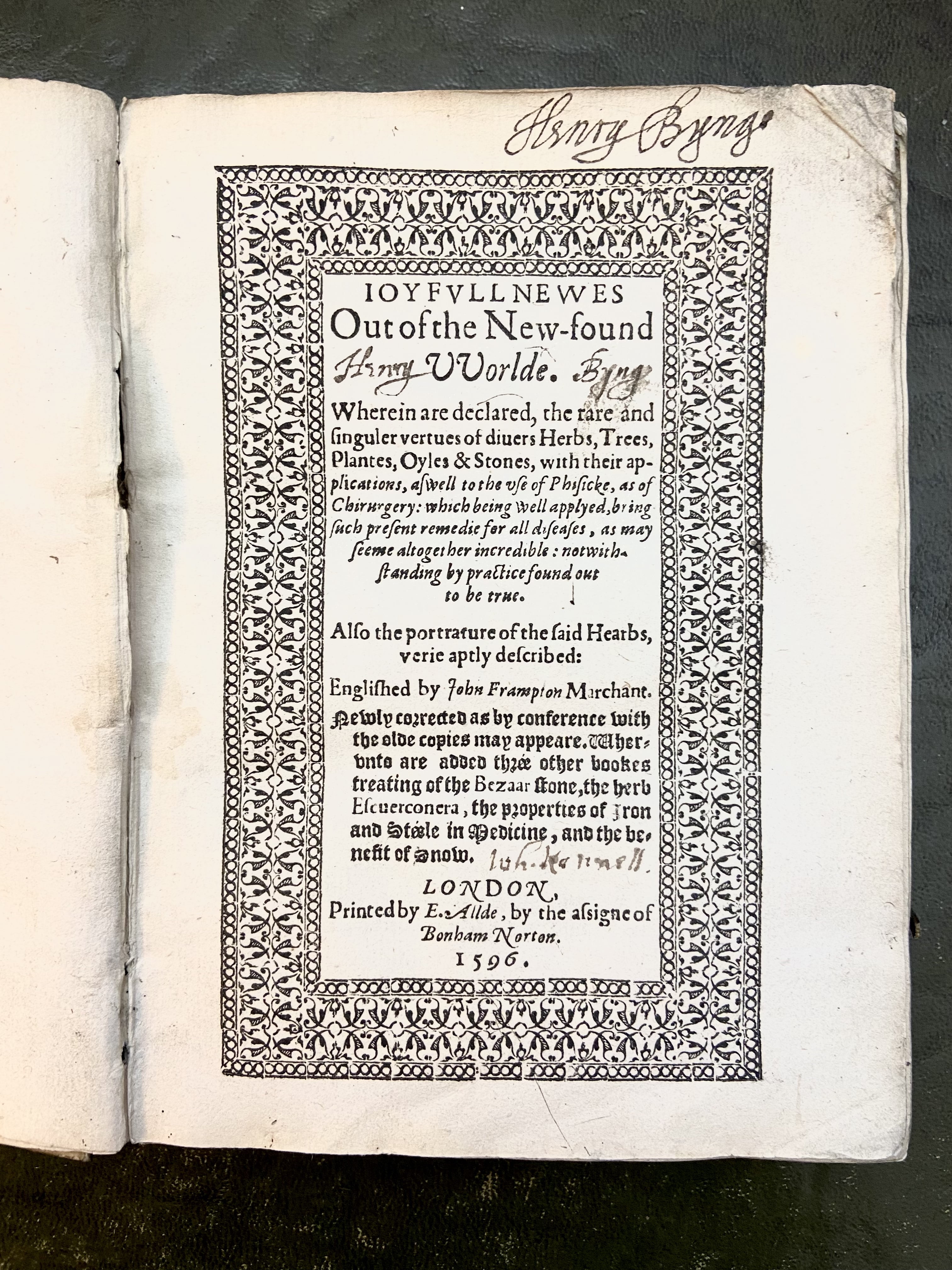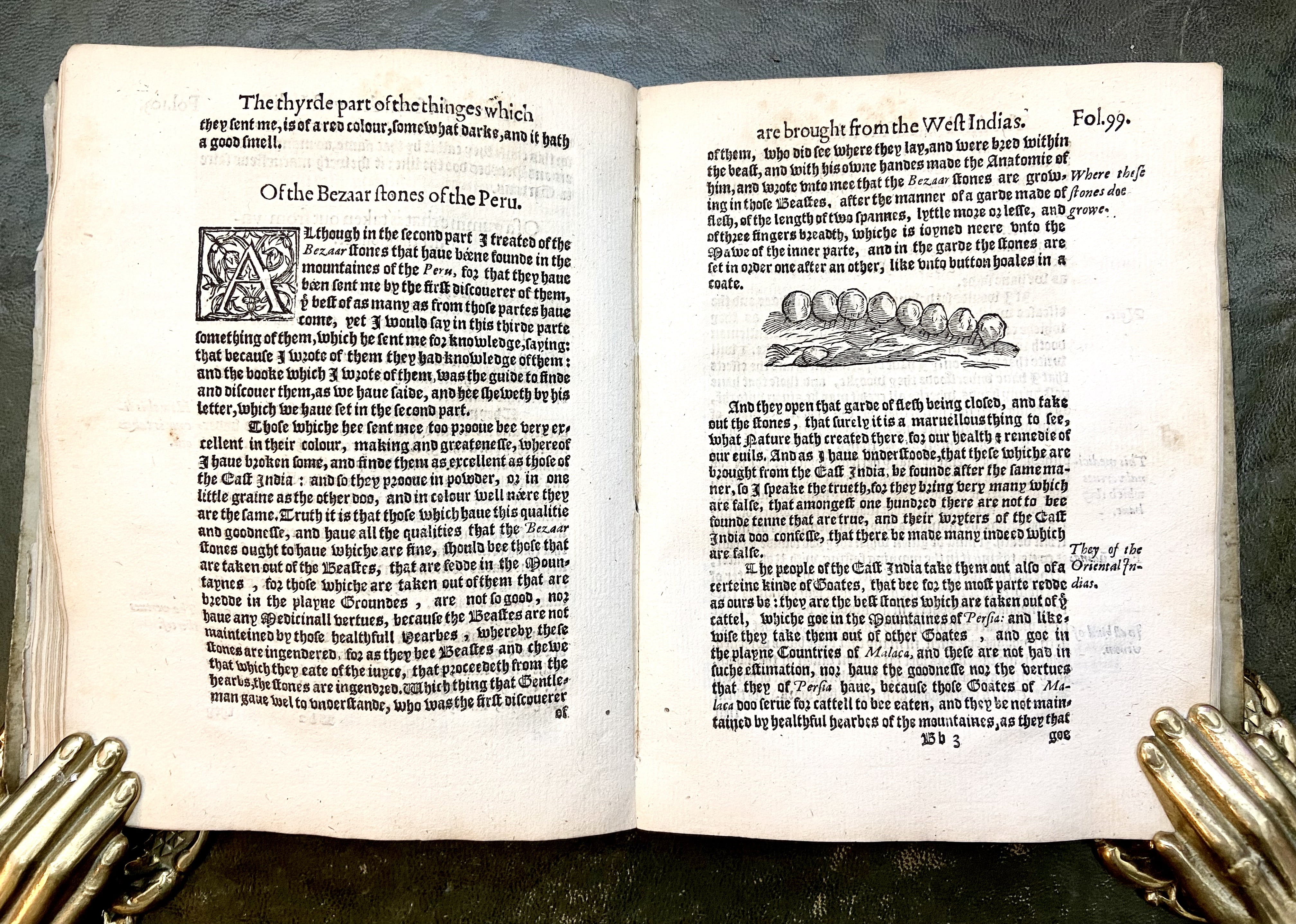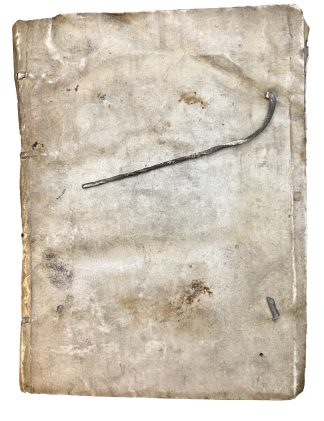MONARDES, Nicolas
Ioyfull newes out of the new-found vvorlde. Wherein are declared, the rare and singuler vertues of diuers herbs, trees, plants, oyles & stones, ..
London, Printed by E. Allde, by the assigne of Bonham Norton, 1596£32,500.00
4to. Four parts in one volume. ff. [iv], 163, 173 [i.e. 171]-187. A , A-2Y . First leaf blank but for large signature mark “A”. Black letter, prefaces in Roman, side-notes in Italic. First and second title-page within fine typographical borders, grotesque ornaments on the other two titles, floriated woodcut initials, woodcut head and tail-pieces, typographical ornaments, 12 woodcuts in the text, three full-page, illustrating herbs and plants, contemporary autograph on title, and each part title, of Henry Bynge (possibly the MP from Grantchester, Cambridgeshire and Gray’s Inn, London 1573-1635), early autograph on title of John Kannell, bookplate of Society for the Propagation of the Gospel on pastedown, Cornelius Hauck’s on fly. Light age yellowing, small marginal worm-trail in blank lower margin and gutter of signatures i-z, pale damp-staining in upper part of final ll.. A fine copy, crisp and clean in contemporary limp vellum, remnants of ties a little soiled, blue morocco slipcase.
A fine copy of the very rare third edition in English, translated by John Frampton, of several most interesting Spanish treatises by Monardes. “The author was one of the most distinguished Spanish physicians of his time. This is the third edition, with additions, of the English translation of his book on the curative plants of the New World; the first and second editions having been printed in 1577 and 1580 respectively. The work opens with a notice on Columbus’s discovery, and among other things, contains a long article on tobacco. (folios 33 – 45)” Church. “The Spanish discovery of the new world produced not only a supply of precious metals but of rare plants apt for study as potential drugs and the means to miraculous new cures. Early among those who pursued these botanical novelties was Nicolás Monardes of Seville, who collected, studied, catalogued, grew and integrated them into his medical practice. After many years, he wrote a singular treatise which was translated into several languages including English and Latin in several spirits at once: a botanical collection; a book of Pharmaceutical simples; a treatise on miraculous cures; a book of wonders; and a work promoting the commercial exploitation of overseas resources. These diverse rhetorical aspects become even more apparent in the work’s translation into English by the merchant-trader John Frampton of Bristol. Monardes’ treatise is not only scientific in its import, but a print culture phenomenon revealing how the new instruments for the mass dissemination of astonishing new data could reconstruct the popular imagination. …Nicolás Monardes of Seville, .. realized as early as the 1530s that these simples might not only contain miraculous healing powers but fetch very high prices, prompting him to collect, classify, and even grow a goodly number of them for incorporation into his clinical practice. The account he at last published, after some thirty years of collecting and study, appeared in parts beginning in 1565 and 1569, and in its entirety in 1571. It became a seminal work in circulating news of these discoveries not only among botanists and apothecaries throughout Europe, but among common readers of the vernacular, for Monardes had chosen to publish in Spanish rather than the Latin of medical specialists. Therein is to be found the earliest accounts of sassafras, cannafistola, sarsaparilla, and the carlo sancto root, a scant four among the seventy-one simples comprising the work. …He had created two works in one, a botanical dictionary, .. but simultaneously a book of wonders, a published “cabinet of curiosities,” …[The English translation] followed the full Spanish edition by only a few years. .. Frampton, as a trader —in full anticipation of the days when such Englishmen as Sir Walter Raleigh would espouse the trade in New World simples— put forward the entire spirit of medical hope and pharmaceutical merchandising in his literary construction of “joyful news.” .. through Frampton’s offices, in bringing Monardes to the attention of English readers,.. there may be seen the foundation for incentives behind the English colonization of Virginia on the basis of commodities formerly little to be imagined. .. Monardes’ enthusiastic account of this plant (Florida sassafras) had a remarkable afterlife in the history of the earliest attempts by the English to found a colony in Virginia. Through Frampton’s translation, the English came to prize the wood of this plant as a cure for many diseases, including syphilis. Thomas Harriot elaborated upon this report in conjunction with the discovery of this wonder-working tree in Virginia in his ‘Briefe and True Report of the New Found Land of Virginia (1590)’.” Donald Beecher, “Nicolás Monardes, John Frampton and the Medical Wonders of the New World.”
A rare, important and beautifully illustrated work.
In stock





